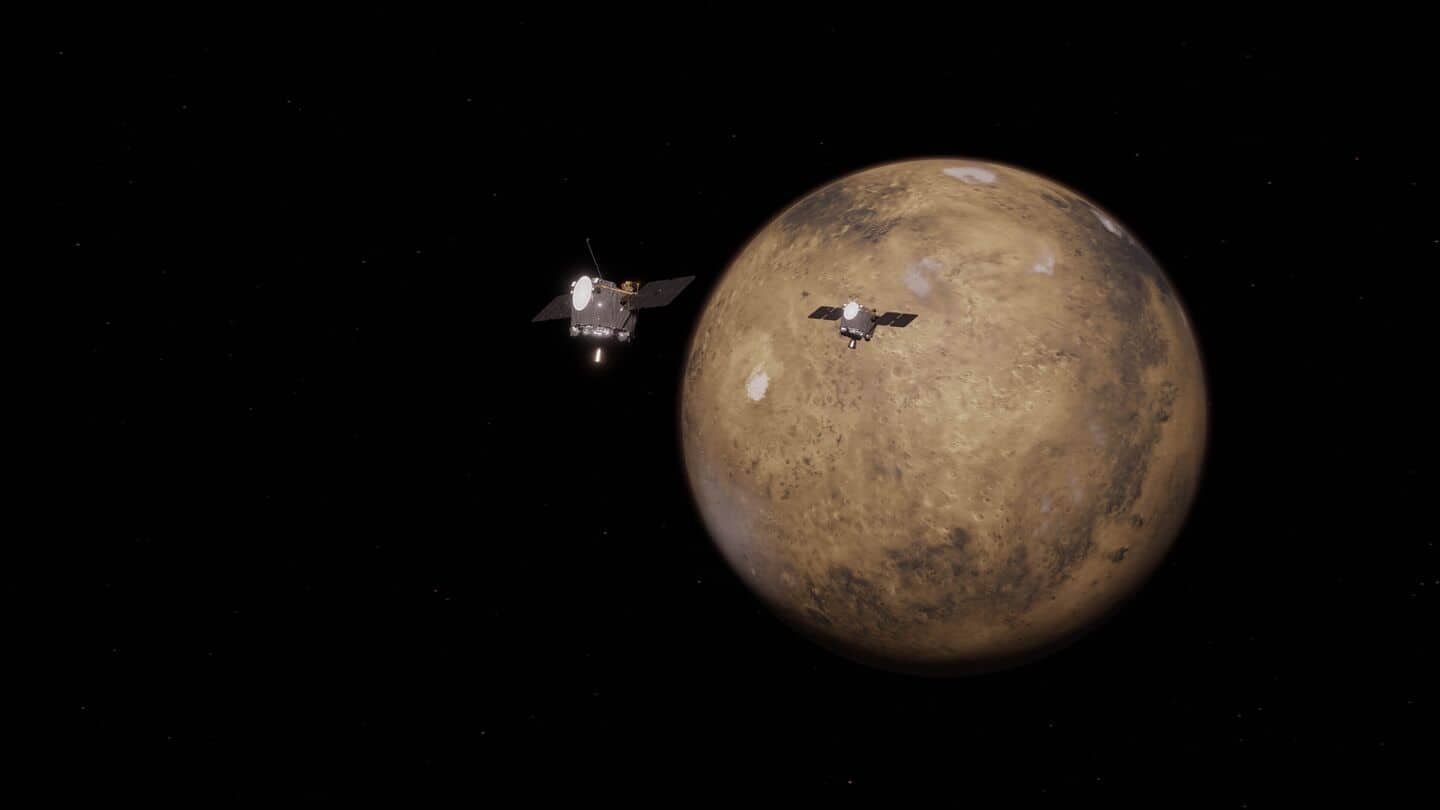
Why Blue Origin postponed launch of NASA's ESCAPADE Mars mission
What's the story
Jeff Bezos's space company, Blue Origin, has postponed the launch of NASA's ESCAPADE Mars mission. The delay was caused by bad weather conditions at Cape Canaveral Space Force Station in Florida. The specific reason for the postponement was a violation of the cumulus cloud rule, which is intended to ensure safe launch conditions amid potentially hazardous weather.
Launch postponement
Blue Origin's New Glenn rocket launch scrubbed
The launch of the ESCAPADE mission, which was supposed to study Mars's magnetosphere and atmospheric loss with twin small spacecraft Blue and Gold, has been postponed. The delay comes as Blue Origin's heavy-lift New Glenn rocket was set for its second flight today. However, several holds were called as meteorologists tracked the growth of cumulus clouds, prompting mission controllers to scrub the attempt.
Future plans
Statement on the delay
In light of the delay, Blue Origin has announced its intention to try again in about 24 hours, depending on improved weather conditions and system readiness. The company said, "Today's NG-2 launch is scrubbed due to weather, specifically the cumulus cloud rule. We're reviewing opportunities for our next launch attempt based on forecasted weather."
Mission details
About the ESCAPADE mission
The ESCAPADE mission will take a unique "launch-and-loiter" route, first parking in Earth's orbit near the Earth-Sun Lagrange Point 2 before heading to Mars in late 2026. The two spacecraft will answer critical questions about how Mars lost its atmosphere and how solar wind and space weather have impacted its climate evolution. This mission is particularly important for understanding the Red Planet's history.
Recovery attempt
Blue Origin aimed to land New Glenn rocket on ship
Along with the ESCAPADE mission, Blue Origin also planned to land the first stage of its New Glenn rocket on autonomous recovery ship Jacklyn in the Atlantic Ocean. This is a major step toward proving reusable heavy-lift rocket technology. The first flight of this 322-foot (98-meter) New Glenn rocket was successful in terms of its payload reaching orbit and conducting tests, but the first-stage booster was lost during descent.